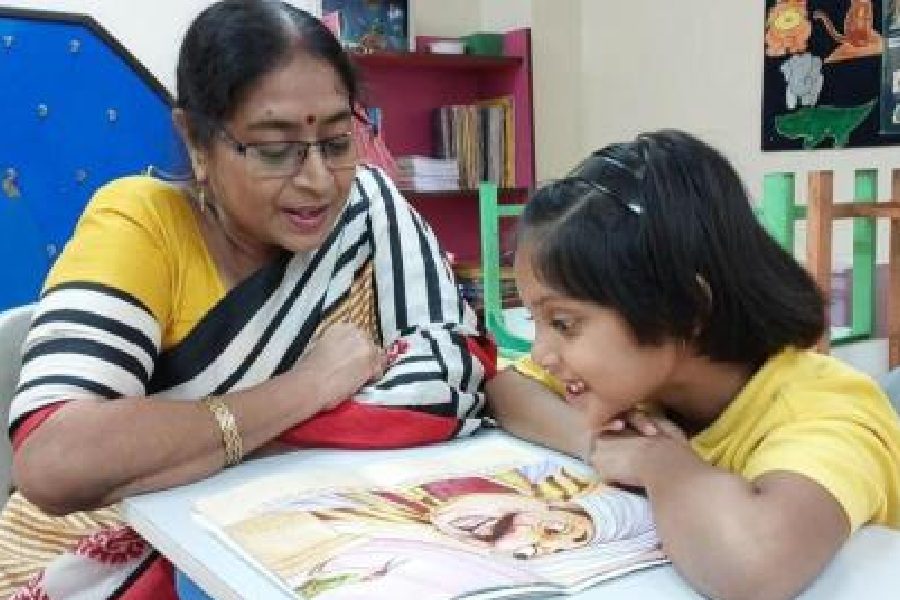Several schools in city trying to revive shared reading between parents and children


Several schools in the city are trying to revive shared reading between parents and children, an activity that has declined over the years in the age of devices and proliferation of social media.
The idea is to encourage parents to read out to their children and make it a pleasurable and joint activity, rather than expecting kids to read on their own and blaming them if they don’t do so, school principals said.
If children see their parents pick up a book to read, they will emulate them, said teachers.
In the past, grandparents reading out to children was a common sight in households. That, too, has taken a backseat.
“Even grandparents are engaged with phones now,” said a teacher.
Shared reading: BD Memorial Junior School is asking parents to read with their children. The parents are required to fill in a form and hand it to the school, along with the book the child has borrowed from the school library. In the form, the parent has to write the title of the book, how many pages he or she and the child have read together and which chapter they liked.
Reading together: Indus Valley World School is inviting parents or grandparents to school to read with the children in the pre-primary section and Class I. The school does this once every three months. The school hopes the parents and grandparents will continue the activity at home.
Reading with peers: At Mahadevi Birla World Academy, students in Classes IV and V are reading out books to the children in Classes I, II and III.
Children are introduced to the screen even before they can stand or walk, said Amita Prasad, director of Indus Valley World School.
“Moving images on a screen have a tremendous power to attract a child or even an adult. So, it becomes an unequal competition with the book. But we have to keep doing such activities that would help them get into the habit of reading. Once children discover the joy of reading, they will themselves read and would not need dedicated activities,” said Prasad.
Unlike earlier, when television was the only distraction, handheld devices have now become one of the greatest sources of distraction for children and adults.
Adults, too, browse their phones when they are not doing anything or between work.
“We rarely see children talk about bedtime reading because that does not happen in most homes anymore. In the beginning, this activity (reading with the child) could be forced, but if they continue they will eventually develop the habit of bedtime reading,” said Suman Sood, director, BD Memorial Junior School.
Teachers said the decline in reading habits is visible across classes.
“Earlier, students would name each other based on characters in story books. We do not see that anymore,” said Prasad.
“But despite all the distractions, there are still children who are avid readers. We have to try and have more of them,” she said.
Children reading aloud to another one helps pick up a skill where he or she learns to hold the attention and engage the listener, a teacher said.
“When they look at the television or a handheld gadget, it is a passive activity. But reading helps the child to imagine, think and reflect,” said Nupur Ghosh, vice-principal, Mahadevi Birla World Academy.
“While we help our children with technology, we have to go back to the basics, which is reading,” she said.
A school initiating such activities also makes parents understand the significance of reading.
“Parents also gradually understand what kind of books they should pick up for their children,” said Sood.